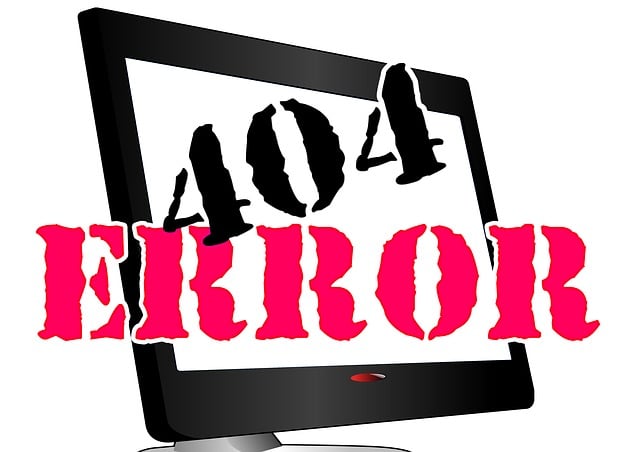Navigating child support is fraught with common errors that can lead to unfair agreements and long-term financial strain. These include miscalculating income, incorrect deductions, and ignoring changes in circumstances. To avoid these pitfalls, parents must:
– Maintain meticulous records
– Clearly communicate with legal representatives
– Accurately report all relevant financial information
– Stay informed about state laws
Proactive measures like these help secure more equitable and sustainable child support arrangements by minimizing child support mistakes and frequent support errors, ultimately fostering a healthier environment for children.
Child support arrangements can be complex, leading to numerous frequent errors that impact families. This article explores common pitfalls in child support cases, focusing on critical misunderstandings and oversights. From misinterpretations of legal requirements to overlooking changes in financial circumstances and ineffective communication, these mistakes can have long-lasting consequences. By understanding and avoiding these typical errors, parents can navigate their support obligations with greater confidence, ensuring a fair and accurate arrangement for their children’s well-being.
- Understanding Common Child Support Calculation Errors
- Misinterpreting Legal Requirements for Support Obligations
- Neglecting to Consider Changes in Financial Circumstances
- Ineffective Communication and Lack of Documentation
- Ignoring the Impact of Co-Parenting Arrangements
- Overlooking State-Specific Support Guidelines and Policies
Understanding Common Child Support Calculation Errors

Understanding Common Child Support Calculation Errors
One of the most significant challenges in child support cases is navigating the complex calculations that determine financial obligations. Frequent errors, often stemming from misinterpreting legal guidelines or omitting crucial data, can lead to unfair agreements and long-term financial strain for all parties involved. These common support errors include miscalculating income, incorrectly applying deductions, and failing to consider changes in circumstances such as job loss or increased medical expenses.
Avoiding these pitfalls requires meticulous record-keeping and clear communication with legal representatives. Parents must ensure that all relevant financial information is accurately reported, including recent pay stubs, tax returns, and any other assets or debts. Regularly reviewing support orders and staying informed about state laws can also help in identifying potential mistakes early on. By being proactive and aware of these frequent support errors, families can work towards more equitable and sustainable child support arrangements.
Misinterpreting Legal Requirements for Support Obligations

Many parents navigating child support arrangements fall into common pitfalls due to a misinterpretation of their legal obligations. Legal terminology and requirements can be complex, leading to mistakes that impact both parents and the well-being of their children. For instance, some parents might incorrectly assume that their support payments are tax-deductible or fail to understand the differences between various payment plans, leading to delays and additional stress.
To avoid these child support mistakes, it’s crucial to seek clarification from legal professionals or support organizations. Understanding the nuances of common support errors can help parents make informed decisions. By staying aware of support case pitfalls and legal support errors, they can ensure their obligations are fulfilled accurately, fostering a healthier and more stable environment for their children.
Neglecting to Consider Changes in Financial Circumstances

Many child support arrangements suffer from common pitfalls, often stemming from overlooked or mismanaged financial changes. Parents involved in a support case may find themselves trapped in a rigid plan that fails to account for life’s unpredictabilities. For instance, a significant shift in either parent’s income, job loss, or unexpected expenses can render the initial support order inadequate or excessive. Neglecting to reevaluate and adjust the support amount based on these changes is a frequent mistake, leading to financial strain on one or both parties.
Legal support errors often arise from this omission, causing unnecessary stress for families already navigating complex emotions. To avoid such mistakes, it’s crucial to stay proactive about financial updates. Regularly reviewing and updating support arrangements ensures they remain fair and aligned with current circumstances. This simple step can prevent a host of issues down the line, making the entire process more efficient and less contentious.
Ineffective Communication and Lack of Documentation

Ineffective communication is one of the most common child support mistakes. When parents fail to keep open lines of dialogue regarding financial matters and parenting schedules, it can lead to misunderstandings and miscalculations. This often results in delayed payments, missed opportunities for shared expenses, and confusion about each parent’s responsibilities. Clear, consistent communication is crucial to ensure everyone involved is on the same page, promoting a smoother support arrangement process.
Lack of proper documentation further exacerbates these issues. Without detailed records of income, expenses, and court-ordered agreements, it becomes challenging to verify compliance and make accurate calculations. This can lead to disputes and legal complications, as both parties may present different interpretations of the original agreement. Adequate documentation is essential to avoid support case pitfalls and ensure the fairness and consistency of payments.
Ignoring the Impact of Co-Parenting Arrangements

In many cases, child support arrangements are seen as a straightforward financial transaction, often ignoring the intricate dynamics of co-parenting relationships. This oversight can lead to frequent mistakes and legal pitfalls for both parents, creating an uneven playing field in their shared responsibility for their children’s welfare. When deciding on support amounts and payment methods, it is crucial to consider the unique aspects of each family’s situation, including the quality of their co-parenting relationship.
Neglecting this dimension can result in common child support errors, such as underestimating the impact of shared custody arrangements or failing to account for changes in both parents’ financial situations over time. These mistakes can have long-lasting effects on families, causing stress and financial strain at a time when stability is most needed. To avoid such pitfalls, parents should actively engage in open communication about their children’s needs and work collaboratively with legal professionals to create support plans that are fair, flexible, and adaptive to evolving circumstances.
Overlooking State-Specific Support Guidelines and Policies

Many parents make the mistake of assuming that child support guidelines are uniform across states, leading to common support errors in their cases. However, each state has its own set of specific laws and policies dictating how child support is calculated and distributed, often resulting in frequent support mistakes. Ignoring these state-specific guidelines can lead to miscalculations of the proper support amount, incorrect duration of payments, or even legal complications.
To avoid these support case pitfalls, it’s crucial to research and understand the specific rules and regulations in their jurisdiction. Parents should consult with a legal professional who specializes in family law to ensure they are following the correct procedures and adhering to the latest changes in child support policies, thereby minimizing the risk of costly legal support errors.
